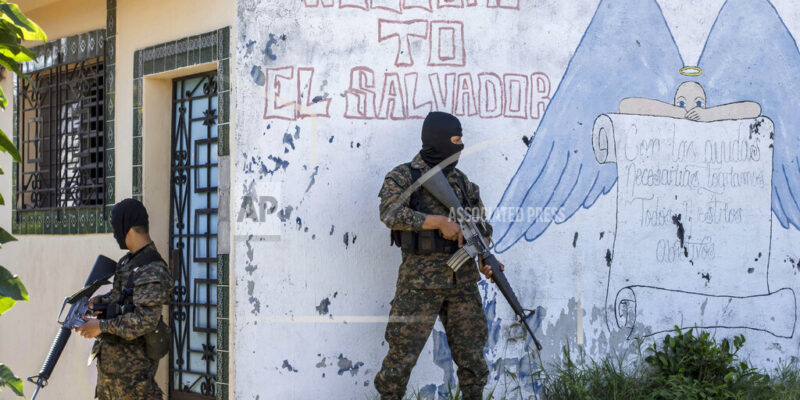Covid-19 has rattled economic, political, and social institutions around the world. As vaccines are becoming widely distributed and daily activities are resuming, we are gaining a preliminary understanding of exactly how the pandemic has impacted society. In Latin America, one of the most striking effects has been the substantial role of organized crime groups in mitigating the spread of the virus, which has occurred as a direct response to the state’s inability to govern effectively and distribute welfare to those in need. In particular, Brazil, Mexico, Colombia, and Guatemala are among the countries that saw the greatest rise in governance by organized crime groups.1
The politicized nature of the virus resulted in different types of government responses throughout Latin America. In the populist governments of Mexico and Brazil, the virus was not initially considered to be a serious public health crisis, leading to a delayed response from states to implement any preventative measures or administer protective health supplies.2 Almost as soon as the virus started spreading throughout the region, however, organized crime groups stepped up to enforce social distancing and distribute hand sanitizer, masks, and dry goods.3 Thus, for the first several weeks of the pandemic in Brazil and Mexico, the organized crime groups were the only functional governing bodies.
In Guatemala and Colombia, the failure of the state to mitigate the spread of Covid-19 was less a matter of political will and more revelatory of the weaknesses of state mechanisms. These states attempted to combat the virus by attaining personal protective equipment, but immense internal corruption meant that they were not able to distribute these goods to the general population. Instead, the organized crime groups with already established supply chain management systems were able to take over the role of the welfare state. In parts of Guatemala and Colombia, organized crime groups were even offering stimulus checks to individuals and organizations who were struggling to survive during the pandemic.4
Although the exact role of gangs and organized crime groups is varied throughout the region, most have focused their efforts on supporting the poor and rural communities who have received the least support from the state. This strategy is particularly effective in establishing political legitimacy.5 Not only are these some of the communities with the greatest need for welfare support, but they also tend to be disillusioned with the state for its negligence, and even overt abandonment in times of crisis. In fact, the Global Initiative on Organized Crime found that the existing level of discontentedness with the state combined with the gangs’ community efforts and economic initiatives has resulted in many rural communities reporting that they trust organized crime groups more than the state. These survey results are a clear indication that the new role of organized crime groups in their communities has contributed significantly to their popular support while simultaneously eroding the legitimacy and social trust in the formal state.
At the beginning of the virus, academic scholars and reporters alike were hopeful that widespread lockdowns and the closure of the borders would make illegal trade substantially harder for organized crime groups, and potentially even lead to their demise.6 However, while these organized crime groups have seen a short term decrease in their profit, they were able to adapt quickly to the chaos ensued by the virus. These groups have used the past two years to gain public support and encourage the perception that they are politically legitimate organizations, in turn augmenting their potential as long-lasting social and economic institutions.
On one hand, organized crime groups in Latin America did provide genuine and necessary support to many vulnerable communities. On the other hand, the rising popularity and public support of organized crime groups poses a serious threat to democratic institutions in the region. Their actions have convinced many rural communities that the state is not needed to enforce order or provide access to resources–which has both undermined the authority of the state while positioning organized crime groups as ‘saviors of the common people’. There is still a lot left to rebuild after the virus, and states in Latin America will struggle to do so without the support of the general public.
Endnotes
Cruz, José Miguel and Brian Fonseca. “How Transnational Crime Is Mutating in the Age of COVID-19 in Latin America.” Americas Quarterly, January 26, 2021, accessed October 27, 2021, https://americasquarterly.org/article/the-other-mutating-virus-the-pandemic-and-organized-crime/.
Ghitis, Frida. “The New Divide in a Polarized Latin America: How to Response to COVID-19,” World Politics Review, April 2, 2020, accessed October 27, 2021, https://www.worldpoliticsreview.com/articles/28650/across-latin-america-coronavirus-responses-are-a-new-dividing-line.
Dudley, Steven. “Latin America’s Prison Gangs Draw Strength From the Pandemic: Where Governments Step Away, Outlaws Step Up,” Foreign Affairs, May 5, 2020, accessed October 27, 2021, https://www.foreignaffairs.com/articles/americas/2020-05-05/latin-americas-prison-gangs-draw-strength-pandemic.
Gomez, Camillo Tamayo. “Coronavirus: narco gangs could see big popularity boost from helping residents in Latin America,” The Conversation, June 22, 2020, accessed on October 27, 2021, https://theconversation.com/coronavirus-narco-gangs-could-see-big-popularity-boost-from-helping-residents-in-latin-america-139613.
Wilson, Mark. “Bizarre Role of Gangs During the Coronavirus Outbreak,” Oxford Political Review, July 19, 2020, accessed on October 27, 2021, http://oxfordpoliticalreview.com/2020/07/19/the-bizarre-role-of-gangs-during-the-coronavirus-outbreak/.
Levy Yeyati, Eduardo and Andrés Malamud. “COVID-19 May Ultimately Strengthen Latin America’s Democracies, Not Destroy Them.” Americas Quarterly, June 10, 2020, accessed October 27, 2021, https://www.americasquarterly.org/article/covid-may-ultimately-strengthen-latin-americas-democracies-not-destroy-them/.
